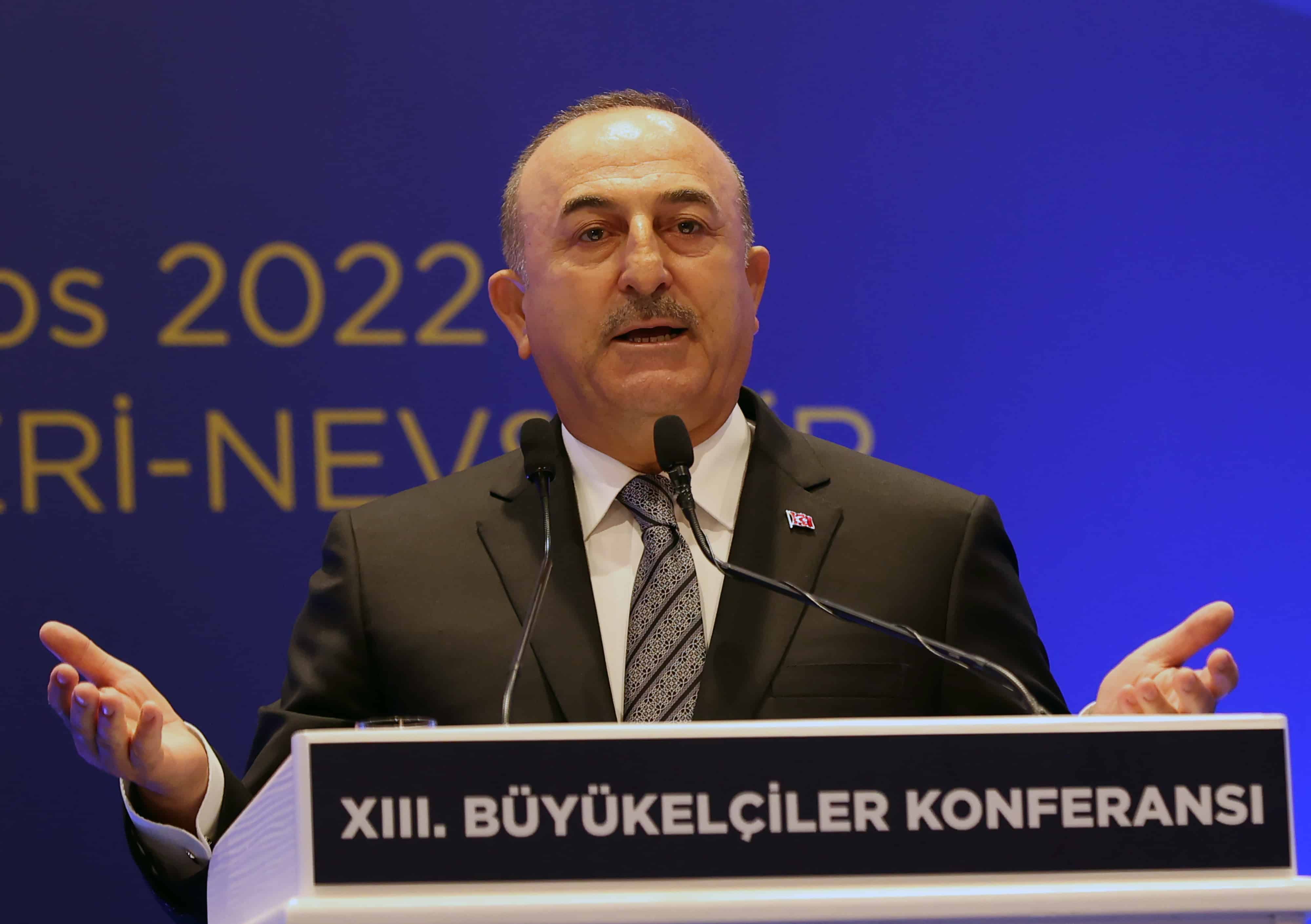Israel and Turkey announced the resumption of full diplomatic ties, following years of strained relations between the Mediterranean nations.
Israeli Prime Minister Yair Lapid hailed the step as an “important asset for regional stability and very important economic news for the citizens” of the Jewish state.
Lapid’s office said the decision to resume ties would see ambassadors and consuls general posted to the two countries once more and direct flights restarted.
The prime minister held a phone call with Turkish President Recep Tayyip Erdogan, during which they agreed the move would “lead to many achievements, especially in the fields of commerce and tourism”, it said.
Erdogan’s office said that in the call he expressed his support for the “development of cooperation and dialogue between Turkey and Israel on a sustainable basis and on the basis of respect for mutual sensitivities”.
The announcement follows months of bilateral efforts to mend ties, with reciprocal visits by top officials.
Turkish Foreign Minister Mevlut Cavusoglu said the return of ambassadors was “important to improve bilateral ties”, while vowing to “defend” Palestinian rights.
Cavusoglu in May became the first Turkish foreign minister to visit Israel in 15 years, during a trip which also saw him meet the Palestinian leadership in the occupied West Bank.
During a landmark visit by Israeli President Isaac Herzog to Ankara two months earlier, Erdogan proclaimed their meeting marked “a turning point in our relations”.
Bilateral relations began to fray in 2008, following an Israeli military operation in Gaza.
Relations then froze in 2010 after the deaths of 10 civilians following an Israeli raid on the Turkish Mavi Marmara ship, part of a flotilla trying to breach a blockade by carrying aid into Gaza.
A brief reconciliation lasted from 2016 until 2018, when Turkey withdrew its ambassador and expelled Israel’s over the killing of Palestinians. More than 200 Gazans were shot dead by Israeli forces during border protests from 2018 to 2019.
Turkey’s economic woes
Reconciliation publicly got underway after Herzog took office in July 2021.
The Israeli president on Wednesday said the full renewal of ties “will encourage greater economic relations, mutual tourism, and friendship between the Israeli and Turkish peoples”.
Despite the diplomatic differences in recent years, trade had continued and Turkey has remained a popular destination for Israeli tourists.
Israel however warned its citizens to return home in June, citing an Iranian assassination plot against its nationals in Istanbul.
Lapid then thanked Ankara for its cooperation on the issue and Israelis swiftly resumed their Turkish holidays.
Israel has been wary of upsetting regional allies over its decision to strengthen ties with Turkey, with Herzog dispatched to Cyprus and Greece ahead of his Ankara trip.
Gallia Lindenstrauss, a senior research fellow at Israel’s Institute for National Security Studies, said Turkey’s financial crisis was likely behind the renewed relations.
“Turkey needs to improve its economic standing to attract foreign direct investment,” she said.
‘Defend’ Palestinians
Turkey has meanwhile been keen to stress its normalisation with Israel could yield benefits for the Palestinians.
“As we have always said, we will continue to defend the rights of Palestinians,” Cavusoglu said.
As well as its relations with the Palestinian leadership based in the West Bank, Turkey has also maintained ties with the Islamist group Hamas that rules Gaza.
Basem Naim, a member of Hamas’s political leadership, said the group condemned any efforts to strengthen ties with Israel.
“We expect all Arab, Muslim and friendly countries to move towards isolating this occupation (Israel), and to pressure it to respond to our legitimate Palestinian rights and aspirations,” he said.
Efraim Inbar, president of the Jerusalem Institute for Strategy and Security, said observers should be “under no illusion” that Israeli-Turkish ties would be as good as they were during the 1990s.
“As long as Erdogan is in power there will be a certain amount of hostility from Turkey towards Israel, because of his Islamist connection. He will continue to support Hamas for instance,” he said.
Israel has imposed a blockade on Gaza’s 2.3 million residents since 2007 and — along with many Western nations — designates Hamas as a terrorist organisation.

